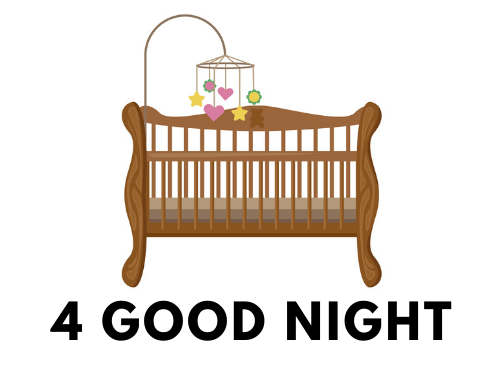Introduction
Embracing motherhood is a journey filled with joy, love, and inevitable challenges. One of the initial challenges you may face as a new mom is understanding and establishing your 6-month-old’s sleep schedule. This article aims to guide you through this process.
From understanding sleep patterns to tackling sleep regressions and disruptions, from recognizing the importance of feeding in sleep routines to creating an ideal sleep environment, we will explore all you need to know about your baby’s sleep schedule. It’s all about helping you and your little one enjoy better sleep and even sweeter dreams.
Understanding a 6-Month-Old’s Sleep Pattern:
Basics and Beyond A 6-month-old baby typically needs about 12 to 16 hours of sleep in a 24-hour period, including naps. During this age, they are transitioning from multiple short naps to fewer, more extended periods of sleep.
Most babies will sleep for a stretch of 6 to 8 hours at night, but each baby is unique and will have their rhythm. Keeping a sleep log can help you identify your baby’s sleep patterns and adjust routines accordingly.
Most babies will sleep for a stretch of 6 to 8 hours at night, but each baby is unique and will have their rhythm. Keeping a sleep log can help you identify your baby’s sleep patterns and adjust routines accordingly.
Typical Sleep Requirements for a 6-Month-Old Baby
At 6 months, your baby will likely sleep for a more extended period at night, perhaps even for 8-9 hours straight. However, they still require daytime naps, typically two naps that last 1-3 hours each. If your baby isn’t meeting these sleep requirements, it doesn’t necessarily signal a problem, but it’s worth discussing with your pediatrician to rule out any underlying issues.
Common Sleep Regressions at 6 Months: How to Tackle Them
Sleep regression is a period when a baby who has been sleeping well suddenly starts waking up at night, and/or skips naps. At around 6 months, due to rapid mental and physical development, your baby may experience a sleep regression. Stick to your baby’s sleep routine, ensure they’re comfortable, and try not to develop new habits like feeding or rocking to sleep, which may create long-term sleep associations.
| Sleep Regression Causes | Symptoms | Duration | Tips for Handling |
|---|---|---|---|
| Developmental milestones | Waking up frequently at night | 2-6 weeks | Maintain a calm and comforting environment |
| Teething | Irritability, decreased appetite | A few days to a week | Use teething toys, maintain sleep routine |
| Illness | Frequent waking, crying, other signs of discomfort | Varies | Seek medical advice |
| Change in routine | Resistance to naps, early waking | 1-2 weeks | Keep consistent routines, adjust gradually |

Nap Schedules for 6-Month-Olds: Key Conside rations
By six months, most babies transition to two naps a day – one in the morning and one in the afternoon. Each nap could last anywhere from 1 to 3 hours. Consistency is key, so try to put your baby down for their naps at the same time each day. However, remember to watch for signs of tiredness as they’re more important than sticking rigidly to a schedule.
Nighttime Sleep Training for a 6-Month-Old: Effective Strategies
Sleep training doesn’t mean forcing your baby to sleep through the night; instead, it’s about teaching them the skills to soothe themselves to sleep. Start by establishing a consistent bedtime routine that signals it’s time to sleep, such as a bath followed by a book. Gradually reduce your interventions (like rocking or feeding to sleep), allowing your baby to self-soothe.
Effects of Growth Spurts on 6-Month-Old Sleep Schedule
Growth spurts, periods when your baby seems to develop more quickly, can affect your 6-month-old’s sleep. Your baby might sleep more than usual or have a disrupted sleep schedule. It’s essential during these times to follow your baby’s cues. If they seem tired, put them to bed. Remember, this is temporary and your baby’s sleep pattern should return to normal once the growth spurt is over.
The Role of Feeding in a 6-Month-Old Baby’s Sleep Routine
Feeding plays a significant role in your 6-month-old’s sleep routine. By six months, many babies can sleep through the night without a feeding, but others might still need one. Remember to differentiate between hunger and a baby’s need for comfort. Feed your baby if they are genuinely hungry but try other soothing techniques if they’re just seeking comfort.

Establishing a Bedtime Routine for 6-Month-Old Infants
A consistent bedtime routine is crucial in setting your baby’s “internal clock” and signaling that it’s time to wind down and go to sleep. This routine might include a warm bath, a bedtime story, or a lullaby. Keep the activities calm and peaceful, and aim to finish the routine at the same time every night.
Sleep Disruptions in 6-Month-Olds: Causes and Solutions
There could be several reasons for sleep disruptions in a 6-month-old baby, including illness, teething, hunger, or a dirty diaper. Once you’ve addressed these needs and your baby is still waking up frequently, it might be time to consider sleep training or a consultation with your pediatrician.
Ideal Sleep Environment for a 6-Month-Old: Safety and Comfort Tips
Creating a safe and comfortable sleep environment is paramount. The room should be dark, quiet, and cool. Use a firm sleep surface with a tight-fitting sheet and avoid pillows, blankets, and toys in the crib to reduce the risk of SIDS. White noise machines or a fan can also help soothe your baby to sleep.
Balancing Daytime and Nighttime Sleep for a 6-Month-Old
By six months, most babies have started to differentiate between day and night, which helps establish more predictable sleep patterns. To strike a balance, make sure your baby gets good-quality naps during the day but also gets plenty of exposure to natural light and engages in stimulating activities, which can help them sleep better at night.
Sleep Aids for 6-Month-Olds: What Works and What Doesn’t
While some parents find sleep aids such as pacifiers, white noise machines, and swaddling beneficial, remember that what works for one baby might not work for another. Avoid sleep aids that might pose a risk, like stuffed animals or blankets in the crib. Always consult with your pediatrician if you’re unsure.
Teething and Sleep Disturbances in a 6-Month-Old
Teething can cause significant discomfort for your baby, which can disturb their sleep. Signs of teething include drooling, irritability, and a desire to chew on hard things. Soothe your teething baby with a teether or cold washcloth, and keep their bedtime routine consistent.
Sleep Regression or Sleep Disturbance: Recognizing the Difference in 6-Month-Olds

Sleep regression is a temporary phase when a baby who was sleeping well suddenly has trouble with sleep. Sleep disturbances, however, might indicate underlying issues like illness or discomfort. Understanding the difference can help you address your baby’s needs effectively and maintain a healthy sleep routine.
When to Seek Medical Help for 6-Month-Old Sleep Issues
If your baby consistently struggles to fall asleep or stay asleep, it’s important toreach out to a healthcare professional. Also, seek medical advice if your baby experiences breathing difficulties during sleep, persistent night waking, unusual fatigue or other signs of illness. Your pediatrician can provide valuable guidance and reassurance.
Impact of Parental Interaction on Sleep Patterns of a 6-Month-Old
Your interactions with your baby significantly impact their sleep. Developing a calming bedtime routine and responding to your baby’s needs can foster better sleep habits. However, try not to create associations that could become sleep crutches, like rocking or feeding your baby to sleep.
Signs Your 6-Month-Old is Getting Enough Sleep
Signs that your 6-month-old is getting enough sleep include being alert and happy during their awake periods, not needing constant soothing to fall asleep, and not waking up frequently at night. Every baby is unique, so these signs may vary.
Adjusting Your 6-Month-Old’s Sleep Schedule for Daycare
Adjusting your baby’s sleep schedule for daycare can be a challenge. Start by gradually shifting your baby’s sleep schedule at home to match the one at daycare. Speak with the daycare providers about your baby’s sleep routine and collaborate with them to ensure a consistent sleep schedule.
The Connection between 6-Month-Old’s Sleep and Cognitive Development
Quality sleep is vital for your baby’s cognitive development. It’s during sleep that your baby’s brain processes everything they’ve learned during the day. So, ensuring your baby gets enough sleep is crucial for their overall growth and development.

Overcoming Common Sleep Schedule Obstacles for 6-Month-Old Babies
Common obstacles to a consistent sleep schedule for a 6-month-old might include sickness, travel, or changes in routine. Try to maintain your baby’s sleep routine as much as possible during these times and remember that temporary disruptions won’t cause long-term harm to your baby’s sleep habits.
Conclusion
Establishing a sleep schedule for your 6-month-old may seem overwhelming, but remember, every baby is unique and what works for one may not work for another. Understand your baby’s cues, be consistent, and make adjustments as needed. Sleep is not only restorative for your baby but for you as a new mom as well. Here’s to peaceful nights and joy-filled days for you and your little one!

Additional Insights
Influence of Physical Activities on 6-Month-Old’s Sleep Engaging your baby in age-appropriate physical activities during the day can help them sleep better. Simple activities like tummy time or baby yoga can promote better sleep while contributing to their physical development.
Role of Solid Foods in 6-Month-Old’s Sleep The introduction of solid foods at around 6 months can impact your baby’s sleep. While solids won’t necessarily make your baby sleep longer stretches, a well-balanced diet contributes to a healthier sleep pattern.
Effect of Sleep on 6-Month-Old’s Mood Adequate sleep can influence your baby’s mood. A well-rested baby is often more content and alert during their awake periods. Conversely, a tired baby might be more irritable and difficult to soothe.
Disclaimer
This article represents personal experiences and research conducted as a mother, alongside observations from interactions with my children and those of my friends. While some of the advice and information shared here has been supported by my child’s doctor, it’s important to remember that every child is unique and may respond differently. This post should be used for informational purposes and should not replace professional medical advice. Always consult with a healthcare professional or pediatrician for any concerns or questions about your child’s health and well-being.














